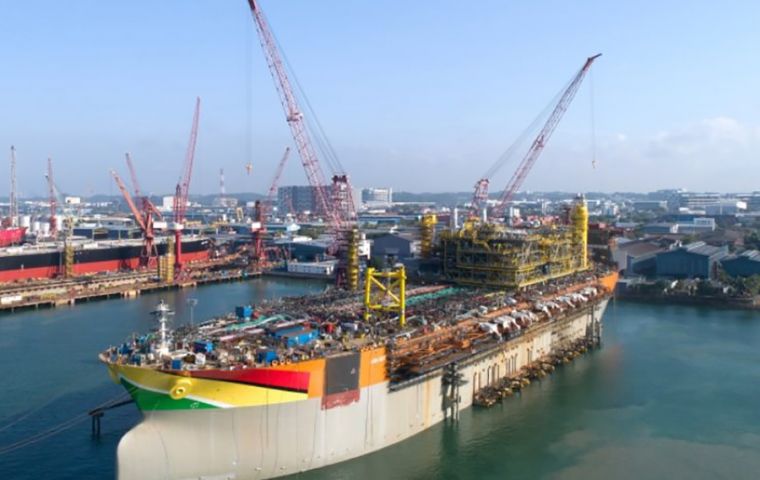MercoPress. South Atlantic News Agency
ExxonMobil will concentrate its growth ambitions in Brazil and Guyana
 ExxonMobil plans in January to start a two-well drilling campaign in Brazil targeting pre-salt deposits using the Seadrill drillship West Saturn.
ExxonMobil plans in January to start a two-well drilling campaign in Brazil targeting pre-salt deposits using the Seadrill drillship West Saturn. ExxonMobil expects Brazil and Guyana will be key drivers for the company’s growth ambitions in the future, as the US super-major looks to concentrate the bulk of exploration and production development activities in the two South American nations, apparently leaving aside the shale deposits in Argentina.
“We have a robust exploration program ahead of us,” ExxonMobil Brazil president Carla Lacerda told a panel at the Rio Oil & Gas 2020 digital conference last week.
“We have reduced capital expenditure globally by 30%, but we remain investing in exploration to grow, and Brazil and Guyana have robust and very competitive projects.”
ExxonMobil plans in January to start a two-well drilling campaign in Brazil targeting pre-salt deposits using the Seadrill drillship West Saturn.
The program will consist of the drilling of the Opal wildcat in Block C-M-789 in the Campos basin and the Titan prospect in the Tita pre-salt area in the Santos basin.
However, ExxonMobil is expected to exercise a contractual option to keep the rig operating longer in Brazil, as the company is also planning on drilling at least one exploration well at the deep-water section of the Sergipe-Alagoas basin in the second half of 2021.
In Guyana, ExxonMobil has been conducting an aggressive exploration campaign that has resulted in nearly 20 discoveries so far in the prolific Stabroek block.
“Our biggest challenge is to keep our operations resilient, but in the long-term — by 2040 — we still think oil and natural gas will have an important role in the world,” Lacerda added.
“Our dual-challenge will be to continue producing energy in a more responsible way with less carbon emissions. And Brazil will play a relevant role.”
Attending the same panel, Shell Brazil president Andre Araujo said the Anglo-Dutch super-major has been focusing on capital discipline, adding the company is also looking at renewables to growth.
“We have teams in Brazil analyzing oil and gas, but also solar power and other renewable energy sources. There has to be a balance between hydrocarbons and renewables in the future,” Araujo said.




Top Comments
Disclaimer & comment rulesCommenting for this story is now closed.
If you have a Facebook account, become a fan and comment on our Facebook Page!